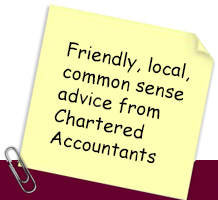If you are a new parent, you can now claim Child Benefit via the HMRC app. However, high earners should note that some or all of the benefit may be clawed back via the High Income Child Benefit Charge.
Key dates
Child Benefit can be claimed from the day after that on which you registered the birth of your child, or once a child comes to live with you. Claims can be backdated for up to three months.
This note explains the nature of the child benefit, how to claim and the impact of the High Income Child Benefit Charge.
Nature Child Benefit
You will normally be eligible to claim Child Benefit it you are responsible for a child under the age of 16 (or under the age of 20 where your child has stayed in approved education or training). Child benefit is also available if you foster a child, as long as you are not receiving anything towards their accommodation or maintenance from your local council. If you adopt a child, you can apply as soon as the child comes to live with you – you do not need to wait until the adoption process is complete.
Only one person can claim child benefit. Consequently, it may be necessary to decide who claims.
For 2023/24 child benefit is payable at the rate of £24.00 per week for the first child and £15.90 per week for the second and any subsequent children. For two children, it is worth just over £2,000 a year.
Other advantages
Claiming Child Benefit confers advantages in addition to the actual payments. By claiming child benefit, you will receive National Insurance credits which will help you to build up qualifying years for state benefit purposes. This is particularly advantageous if you will not pay sufficient National Insurance for the year to be a qualifying year. This may be the case if you do not do any paid work, for example, if you are a stay-at-home parent, or if your earnings are less than the lower earnings threshold of £123 per week if you are an employee or, if you are self-employed, your profits are less than the small profits threshold of £6,725 a year. You need 35 qualifying years to earn a full state pension and at least 10 qualifying years for a reduced state pension. If you have at least one child, claiming child benefit will provide you with 16 qualifying years or more.
Claiming child benefit will also mean that your child is allocated a National Insurance number automatically when they reach the age of 16.
Consequently, it is always worth claiming Child Benefit, even if you elect not to receive the payments where they would clawed back by the High Income Child Benefit Charge.
Claiming Child Benefit
There are various ways in which a claim for Child Benefit can be made.
You can now claim via the HMRC app. If you do not already have the app you can download it from the App Store for iOS or from the Google Play Store for Android. You will need to sign into the app using your Government ID and password. If you do not already have one, you will be able to create one on the sign in page. The app has a dedicated Child Benefit section from which you will be able to make an online claim. Once you have made a claim, you will also be able to view your payments and other details.
You can also claim online via the Gov.uk website at www.gov.uk/child-benefit/how-to-claim.
To make a claim, you will need to have the following to hand:
- your child’s birth certificate or adoption certificate;
- your bank or building society details;
- your National Insurance number: and
- your partner’s National Insurance number if you have a partner.
Claims can also be made by post by completing child benefit form CH2 (available to download from the Gov.uk website at www.gov.uk/government/publications/claim-child-benefit-if-you-cannot-claim-online) and sending it to the address on the form.
You can also claim by calling HMRC’s Child Benefit helpline on 0300 200 3100.
As claims can only be backdated by three months, it is advisable to claim as soon as you are able so that you do not lose out.
High Income Child Benefit Charge
The High Income Child Benefit Charge (HICBC) is a tax charge that claws back some or all of the child benefit that you have received if either you or your partner have income of more than £50,000. Any maintenance from a former partner is not taken into account. Where both partners have income in excess of £50,000, the charge is levied on the person with the highest income.
It should be noted that your partner may be liable for the charge, even if they are not a biological parent of the child/children is respect of whom the child benefit is paid.
The charge claws back 1% of the child benefit paid for every £100 by which income exceeds £50,000. Once income reaches £60,000, the tax charge is equal to the child benefit paid in the tax year.
To avoid having to repay the benefit, you can elect not to receive it. However, it is still beneficial to make a claim to benefit from the associated National Insurance credits.

